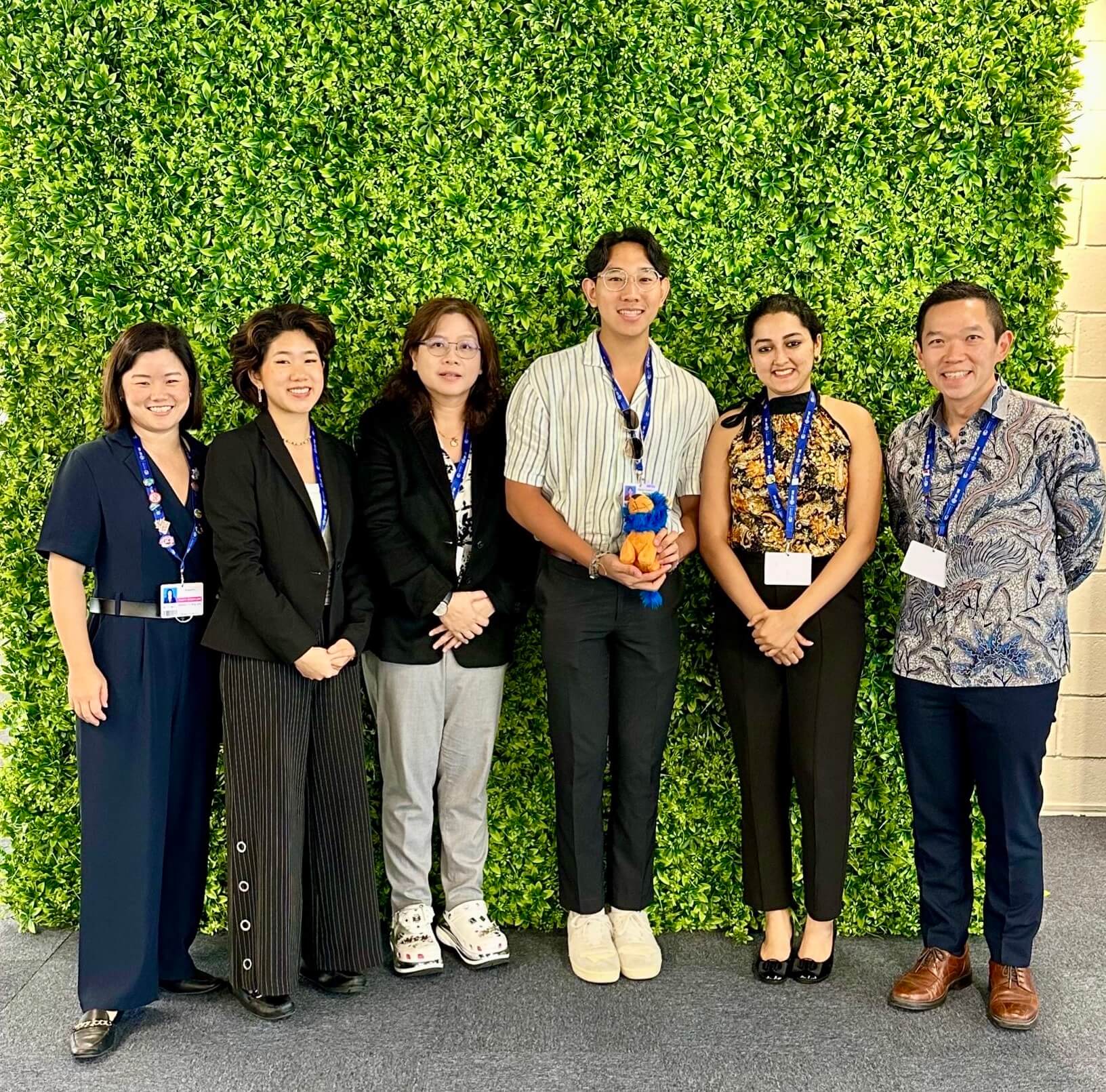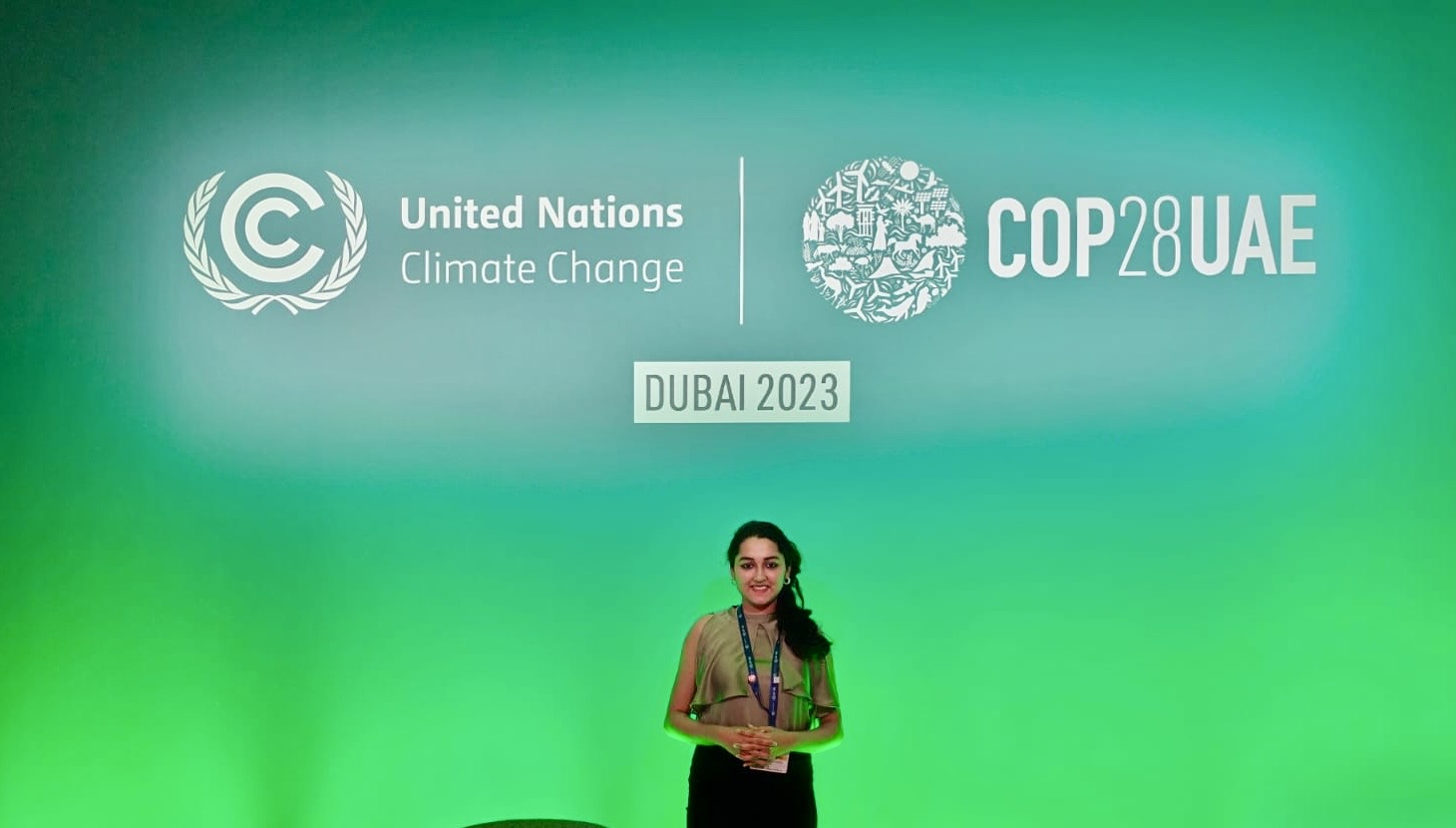
This year, I had the honour of representing the Lee Kuan Yew School of Public Policy, National University of Singapore, at the recent COP28, or the 28th Conference of the Parties under the UN Framework Convention on Climate Change, held in Dubai, United Arab Emirates. Being part of the largest gathering in United Nations climate change history during the conference's first week was a gratifying experience. I was among 10 selected out of over 200 applicants, for this opportunity, marking the inaugural instance of NUS sending youth delegates to the COP.
As someone who is passionate about climate change and sustainability, this conference provided me with a unique opportunity to observe high-level negotiations, country commitments, fund launches, country pavilion events, panel discussions and youth engagement activities, as well as interact with indigenous communities from various parts of the world that are most affected by climate change.
I experienced a sense of collaborative enthusiasm as COP28 saw more than 70,000 participants. This year’s conference was particularly noteworthy as the CEO of Abu Dhabi National Oil Company (ADNOC), HE Dr Sultan Al Jaber, assumed the COP presidency and led in hosting the conference. This was a historic moment because having the presence of various stakeholders, especially the participation of oil-producing nations, is crucial in addressing and tackling climate-related matters vital to the COP process.
.png?sfvrsn=bde93b0a_0) Negotiations at the Global Stage
Negotiations at the Global Stage
At COP28, I closely followed the discussions on the New Collective Quantified Goal (NCQG) on climate finance, a pivotal topic that has sparked debate. This goal, established under the Paris Agreement, aimed to secure a minimum of US$100bn per year, considering the needs of developing nations. The process began in early 2022 and is slated to conclude by the end of 2024. Witnessing firsthand the negotiations among countries on the draft texts was an eye-opening experience. Hours and days were dedicated to reaching a consensus on language before moving towards operationalisation and implementation.
The dedication and hard work exhibited by negotiators from over 190 countries to find a common ground was truly commendable. The painstaking process of meticulously revising and refining the text line by line illuminated the challenges inherent in the decision-making process within the COP sessions. It became evident that while progress was being made, it still fell short of meeting the urgency demanded by the climate crisis. The need to accelerate our collective efforts became glaringly apparent.
However, amidst this realisation, I also grasped the significance of consensus-building among nations. The immense effort required to align diverse viewpoints towards a unified goal highlighted the importance of this process. Achieving consensus not only signifies agreement but also ensures that investments are more impactful, actions are better coordinated, and there's a collective momentum towards addressing climate challenges.
The journey through COP28 enabled me to understand the intricate balance between urgency and consensus. While urgency calls for swift action, consensus-building fosters a unified approach that can lead to more effective and impactful outcomes in the long run. The challenges faced during the negotiations underscored the complexity of global climate governance.
Inclusivity at COP28
On another note, it was also inspiring to see greater inclusivity this year as indigenous people, youth and frontline communities were represented and actively participated. However, we still need more women at the negotiating table and in global leadership for a more gender-representative participation in the decision-making process.
I also witnessed the impact of the ongoing Israel-Gaza crisis, which was felt inside and outside the negotiation rooms at COP28. Activists protested outside Israel’s country pavilion, and several leaders acknowledged that climate change cannot be discussed in isolation from the humanitarian tragedies unfolding before us, to which I strongly agree.

At the heart of the COP28 negotiations was the Global Stocktake and the establishment of a loss-and-damage fund. Fossil fuel phase-out emerged as a major point of contention. While various nations initially held differing stances, a historic consensus was eventually reached to transition away from fossil fuels. Despite existing loopholes in the texts, this decision signifies a crucial step forward.
Additionally, commitments were made to operationalise a US$700mn loss-and-damage fund, triple global renewable energy capacity, double the annual rate of energy efficiency improvements, and expedite the development of zero and low emissions technology. The successful implementation of these commitments hinges upon each country's dedication to climate action and their ability to strike a balance between these measures and their economic growth and national interests.
The path ahead is long and arduous. The pledges made at COP28 are merely the beginning of the transformation that we are undergoing. Transparency in reporting progress, commitment to the Paris Agreement targets, and active participation of civil society will be critical to ensure that the pledges made at COP28 bring tangible outcomes. The burden of solving climate change should not fall primarily on the shoulders of countries that produce fossil fuels, but also on those who consume these resources.
Working Towards a Sustainable Future
COP28, to me, was a convergence of policy, culture, collaboration and innovation underscoring both hope and challenges, progress as well as shortcomings. Now more than ever, it is important to weave the threads of policy, culture, collaboration and innovation to bring forth equitable climate solutions.
Overall, this event provided me with profound insights into the complexities of international climate negotiations. It highlighted the need for accelerated action while emphasising the pivotal role of consensus-building in driving meaningful change towards a sustainable future. COP28 was an enlightening journey and has inspired me to utilise the knowledge gained to make a meaningful impact through my career in the field of climate and sustainability.